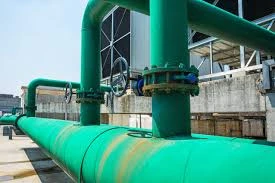
-
 Afrikaans
Afrikaans -
 Albanian
Albanian -
 Amharic
Amharic -
 Arabic
Arabic -
 Armenian
Armenian -
 Azerbaijani
Azerbaijani -
 Basque
Basque -
 Belarusian
Belarusian -
 Bengali
Bengali -
 Bosnian
Bosnian -
 Bulgarian
Bulgarian -
 Catalan
Catalan -
 Cebuano
Cebuano -
 China
China -
 China (Taiwan)
China (Taiwan) -
 Corsican
Corsican -
 Croatian
Croatian -
 Czech
Czech -
 Danish
Danish -
 Dutch
Dutch -
 English
English -
 Esperanto
Esperanto -
 Estonian
Estonian -
 Finnish
Finnish -
 French
French -
 Frisian
Frisian -
 Galician
Galician -
 Georgian
Georgian -
 German
German -
 Greek
Greek -
 Gujarati
Gujarati -
 Haitian Creole
Haitian Creole -
 hausa
hausa -
 hawaiian
hawaiian -
 Hebrew
Hebrew -
 Hindi
Hindi -
 Miao
Miao -
 Hungarian
Hungarian -
 Icelandic
Icelandic -
 igbo
igbo -
 Indonesian
Indonesian -
 irish
irish -
 Italian
Italian -
 Japanese
Japanese -
 Javanese
Javanese -
 Kannada
Kannada -
 kazakh
kazakh -
 Khmer
Khmer -
 Rwandese
Rwandese -
 Korean
Korean -
 Kurdish
Kurdish -
 Kyrgyz
Kyrgyz -
 Lao
Lao -
 Latin
Latin -
 Latvian
Latvian -
 Lithuanian
Lithuanian -
 Luxembourgish
Luxembourgish -
 Macedonian
Macedonian -
 Malgashi
Malgashi -
 Malay
Malay -
 Malayalam
Malayalam -
 Maltese
Maltese -
 Maori
Maori -
 Marathi
Marathi -
 Mongolian
Mongolian -
 Myanmar
Myanmar -
 Nepali
Nepali -
 Norwegian
Norwegian -
 Norwegian
Norwegian -
 Occitan
Occitan -
 Pashto
Pashto -
 Persian
Persian -
 Polish
Polish -
 Portuguese
Portuguese -
 Punjabi
Punjabi -
 Romanian
Romanian -
 Russian
Russian -
 Samoan
Samoan -
 Scottish Gaelic
Scottish Gaelic -
 Serbian
Serbian -
 Sesotho
Sesotho -
 Shona
Shona -
 Sindhi
Sindhi -
 Sinhala
Sinhala -
 Slovak
Slovak -
 Slovenian
Slovenian -
 Somali
Somali -
 Spanish
Spanish -
 Sundanese
Sundanese -
 Swahili
Swahili -
 Swedish
Swedish -
 Tagalog
Tagalog -
 Tajik
Tajik -
 Tamil
Tamil -
 Tatar
Tatar -
 Telugu
Telugu -
 Thai
Thai -
 Turkish
Turkish -
 Turkmen
Turkmen -
 Ukrainian
Ukrainian -
 Urdu
Urdu -
 Uighur
Uighur -
 Uzbek
Uzbek -
 Vietnamese
Vietnamese -
 Welsh
Welsh -
 Bantu
Bantu -
 Yiddish
Yiddish -
 Yoruba
Yoruba -
 Zulu
Zulu
frp boat body
The Advantages of FRP Boat Bodies
FRP, or Fiber Reinforced Plastic, has emerged as one of the most favored materials for boat construction in recent years. This innovative composite material combines the strength of fiberglass with the durability of plastic, offering numerous advantages over traditional boat-building materials such as wood, aluminum, and steel.
The Advantages of FRP Boat Bodies
Furthermore, FRP is highly resistant to corrosion and environmental degradation. Unlike wooden boats that may rot or require constant maintenance, FRP boats can withstand harsh marine conditions, including saltwater exposure, UV radiation, and extreme weather. This resistance to corrosion not only prolongs the lifespan of the boat but also reduces maintenance efforts and costs, making FRP a cost-effective solution for boat enthusiasts and commercial operators alike.
frp boat body

Another significant advantage of FRP boat bodies is their ability to be molded into complex shapes. This flexibility in design allows for creative and functional boat designs that can optimize performance and aesthetic appeal. Whether it’s a sleek racing yacht or a rugged fishing vessel, FRP can be tailored to meet specific performance criteria and user preferences, making it highly versatile.
Moreover, the manufacturing process for FRP is increasingly eco-friendly. As awareness of environmental issues grows, the boating industry is shifting towards sustainable materials. FRP can be produced with recycled materials and has the potential to be fully recyclable at the end of its lifespan. This commitment to sustainability not only benefits the environment but also resonates with eco-conscious consumers looking for greener alternatives.
Finally, FRP boat bodies offer excellent insulation properties, reducing onboard noise and temperature fluctuations. This makes for a more comfortable experience while on the water, whether for leisure or long voyages.
In conclusion, the advantages of FRP boat bodies are numerous, making them an appealing choice for modern boat construction. Their lightweight design, resistance to corrosion, versatile manufacturing capabilities, eco-friendliness, and comfort features position them as a leading alternative to traditional boat materials. As technology continues to evolve, FRP is likely to play an even more significant role in the future of boating.









